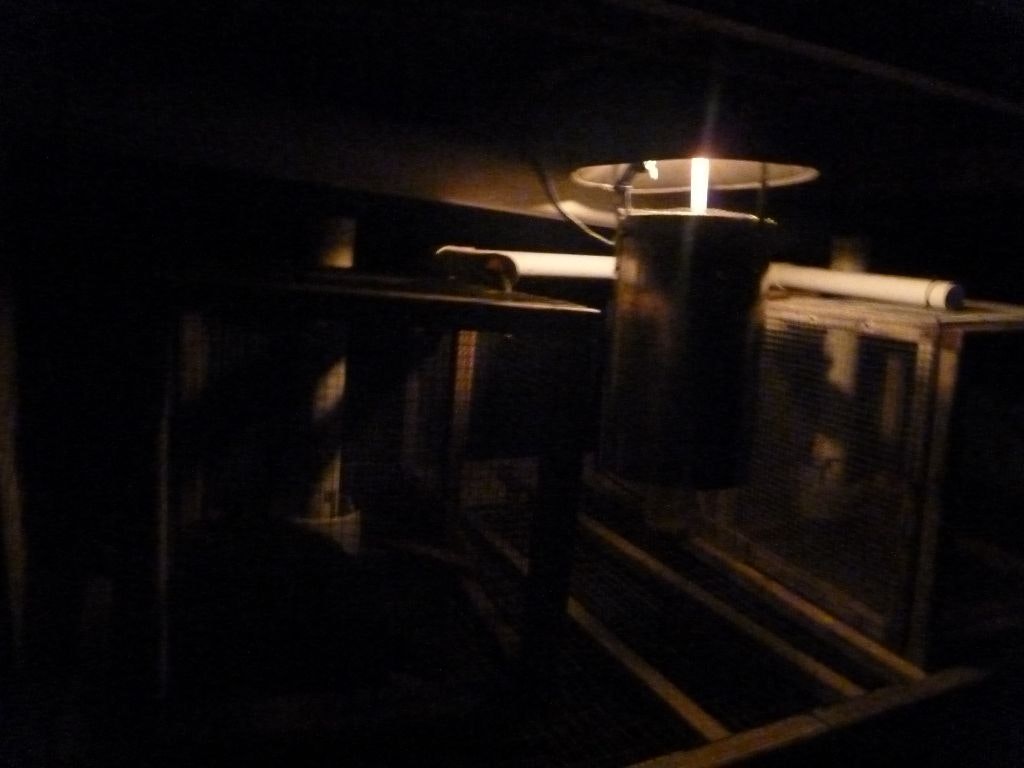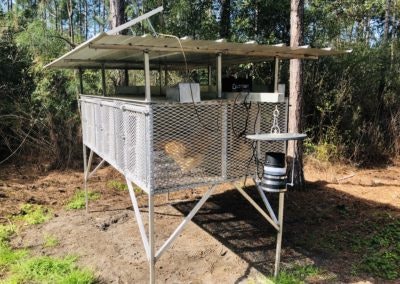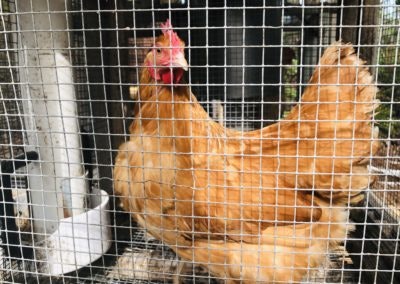Surveillance

Surveillance is an important part of Integrated Pest Management (IPM)
By monitoring South Walton for mosquitoes and the arboviruses they may transmit, the district takes a proactive approach to mosquito control. This is done mainly through the deployment of mosquito traps, testing of blood samples, and public interaction through service requests. All data gathered in field surveillance is used to determine the best approach of control to protect our constituents.
SWMD has 22 permanent surveillances sites located throughout South Walton. These sites are equipped with a light trap to lure in mosquitoes and a rain gauge to monitor precipitation levels and standing water. Traps are programmed via timer to run two days a week to collect mosquitoes. Trap collections are picked up by technicians and taken back to the district’s lab to be counted and identified by an entomologist. By knowing what species are collected within a surveillance area, the district can monitor for vectoring mosquitoes that are a disease concern and make informed decisions on what control measures need to be taken.



Surveillance chicken coops are located at 16 of the permanent sites to act as SoWal’s sentinels against West Nile virus (WNv), Eastern Equine Encephalitis (EEE), and Saint Louis Encephalitis (SLE). Chickens are considered dead-end hosts for the viruses and because of their asymptomatic nature, they are the perfect “mosquito monitors.” Because mosquitoes are attracted to CO2, the chickens provide an additional bait to traps and generally lure in a variety of mosquitoes to feed. Small blood samples are taken weekly from our sentinels and sent to a diagnostic laboratory in Tampa to test for WNv and EEE. A positive bird alerts the district to a potential arboviral concern within the surveillance area and prompts an appropriate control response before a potential outbreak can occur. Positive birds are removed from the field and replaced with a new bird. SWMD deploys 64 chickens throughout the county, which is the highest of any Florida mosquito control district. No chicken is harmed or injured for this program. If and when a chicken tests positive, we find a new loving home for them within our area where they live a happy and full life.
SoWal residents can file service requests with the district if they are experiencing a potential mosquito problem by calling the district office or online on this website. A technician will come to inspect the property for breeding habitats, drainage problems, or areas of concern, and a survey of the property will determine what actions need to be taken to eliminate the issue. Aside from allowing us to better serve the public, service requests provide additional surveillance data that’s used in the creation of hotspots/heat maps for mosquito activity.
All surveillance data gathered is used to uphold the district’s mission and to help protect our residents.


